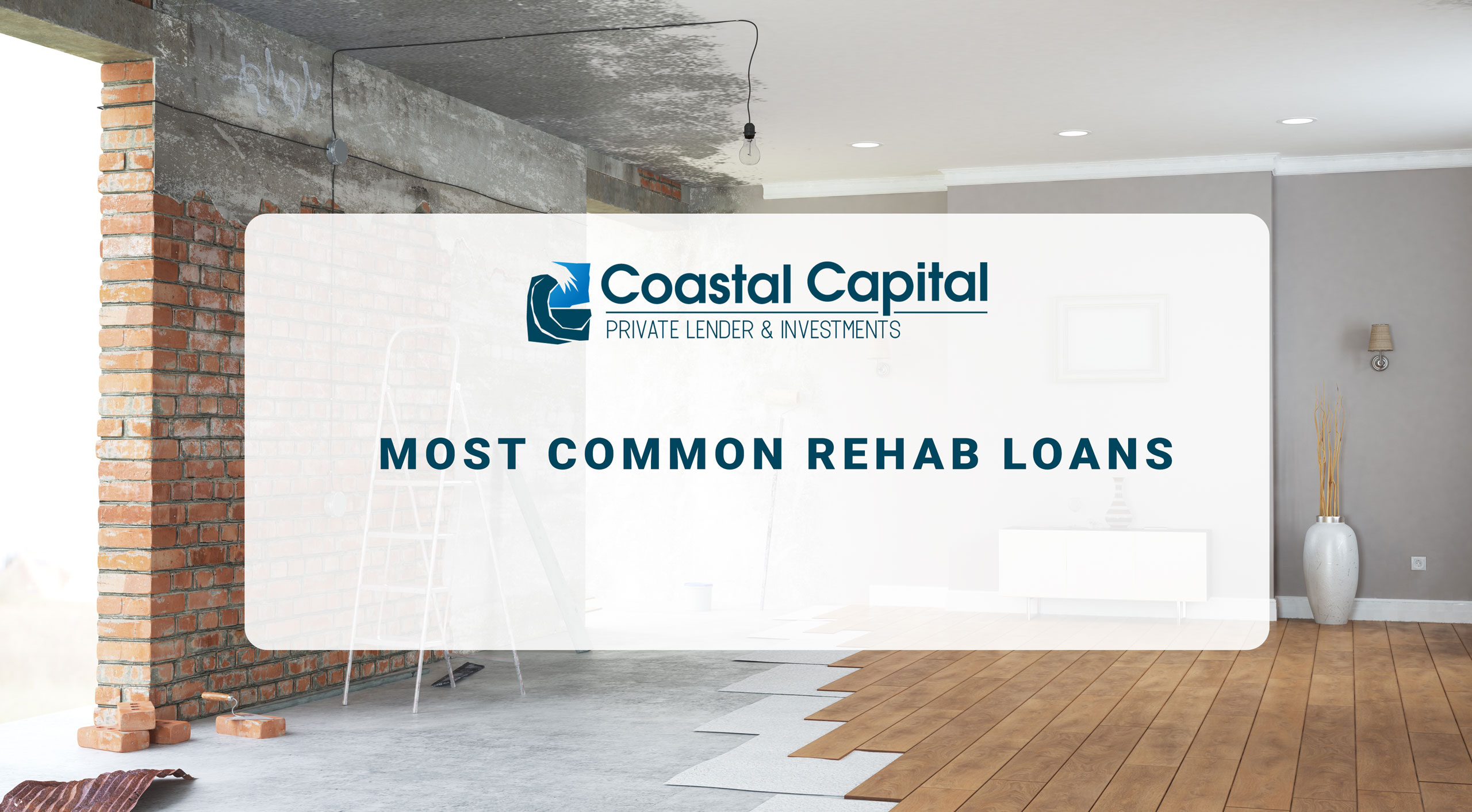Most common rehab loans

Rehab loans, also known as fix-and-flip loans or renovation loans, are used by investors to purchase and renovate properties. Here are some of the most common types of rehab loans:
1. FHA 203(k) Loans: These loans are insured by the Federal Housing Administration (FHA), and are intended for owner-occupied properties. There are two types: standard and limited. Standard 203(k) loans can be used for structural repairs and renovations, while limited 203(k) loans are for non-structural repairs. The property must be at least one year old, and there are limits on the loan amount, which vary by location.
2. HomeStyle Renovation Loans: This loan is offered by Fannie Mae and can be used for almost any type of renovation, including luxury items like pools or landscaping. It can be used for investment properties, second homes, and primary residences. Borrowers need a minimum credit score of 620 and the renovations must be completed within 12 months.
3. Hard Money Loans: These are short-term loans offered by private lenders, often used by experienced investors for properties that require extensive renovations. The loans are typically interest-only with a term of 1-3 years, and the lender usually requires a detailed renovation plan and budget. They are ideal for properties that need quick closing or that may not qualify for traditional financing due to their condition.
4. Bridge Loans: Also known as swing loans, these are short-term loans that “bridge” the gap between the purchase of a new property and the sale of an existing one. They can be helpful when an investor needs to act quickly on a new opportunity but hasn’t yet sold an existing property.
5. Cash-Out Refinance Loans: This is when an investor refinances an existing property for more than the current mortgage balance, and receives the difference in cash. This can be used to fund renovations on the property.
6. Investment Property Line of Credit (LOC): This is a revolving line of credit that an investor can draw on to fund property renovations. This can be a flexible option for experienced investors who have multiple properties.
Remember, each loan type has its own qualification criteria, interest rates, fees, and terms. It’s important to understand the details of each type of loan and to work with a lender who specializes in rehab loans.

